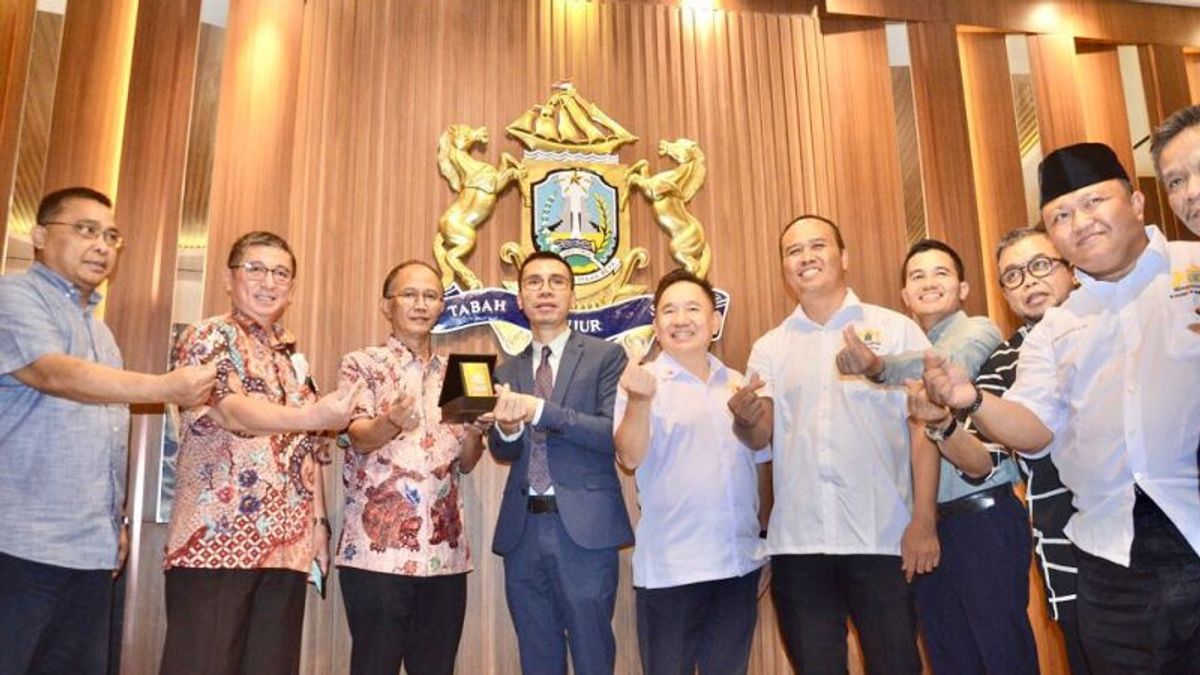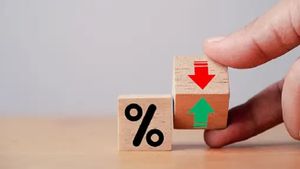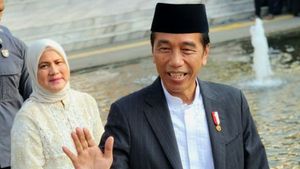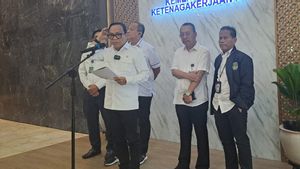SURABAYA - The East Java Chamber of Commerce and Industry (Kadin) welcomed the efforts of the Vietnamese government to revitalize trade relations with Indonesia.
Chairman of the East Java Chamber of Commerce and Industry (Kadin) Adik Dwi Putranto said Vietnam became Indonesia's 11th largest trading partner last year, with a contribution of about 2.58 percent to the total trade value of Indonesian goods.
"For us, Vietnam is one of the most potential trading partners and efforts to revitalize this trade relationship will be an important point in improving trade performance between the two countries, including for East Java," Adik said in a statement quoted by Antara, Friday, September 30.
Menurut dia, sejauh ini kinerja perdagangan Indonesia dengan Vietnam cukup bagus dan terus mengalami kenaikan, bahkan mengalami surplus yang cukup besar.
Trade data from the United Nations (UN Comtrade) noted that the value of goods trading between the two countries reached 11.06 billion US dollars in 2021, the highest record since 1989. Indonesia also posted a surplus of trade in goods with Vietnam of 2.63 billion US dollars in 2021, the largest surplus since 1989.
"In 2021 the value of Indonesia's exports of goods to Vietnam grew 38.65 percent (yoy) to 6.85 billion US dollars. Five of Indonesia's main export commodities to Vietnam are coal, palm oil, iron, motorcycles and vehicles," he said.
Meanwhile, the import value of goods from Vietnam also grew 34.57 percent (yoy) to 4.21 billion US dollars in the same period. Five main commodities imported by Indonesia from Vietnam were telephone, iron, Propiena, television and leather equipment.
Previously, the Bilateral Committee of Vietnam-Kamboja Kadin Indonesia, Edwin Setiawan Tjie, accompanied the Coordinating Ministry for Trade Affairs at the Vietnam Socialist Embassy in Jakarta, Pham The Cuong, visited Graha Kadin East Java, saying the visit was an effort to introduce themselves and in order to revitalize trade relations with Indonesia.
"This is the first stage in revitalizing trade relations between the two countries, Vietnam and Indonesia," said Edwin.
According to him, all lines of industry have the opportunity to work together, both from the agriculture, tourism, and especially in the trade sector. "There is also a potential for residical investment between Indonesia and Vietnam," he said.
The magnitude of this potential is not only because the Vietnamese market is quite promising, but also because of the large exports of Vietnam to a number of countries. Vietnam, he continued, needed a lot of production materials for the various products they would export.
"Because Vietnam's exports are extraordinary, and Indonesia can collaborate, not compete so that we can map the countries that have been opened by Vietnam. That's what we can use," he said.
The realization of Indonesia's exports in 2022 is expected to be very good, even a surplus. From the target of 10 billion US dollars, 11.2 billion US dollars have been achieved, so that by the end of this year it is estimated to reach 13 billion US dollars.
"One of the objectives of our visit is how we can achieve the setting of bilateral objectives between Indonesia and Vietnam, which reached 13 billion US dollars," said Edwin.
Regarding the obstacles faced by Indonesia in carrying out export activities, he said so far there were none. It was precisely Vietnam that experienced obstacles, one of which was the obligation to have halal certification.
Therefore, the Indonesian Chamber of Commerce and Industry together with the Indonesian Consul General in the city of Ho Chi Minh helped and facilitated Vietnamese business actors to obtain halal certification so that their products could enter Indonesia.
Meanwhile, Komarak, Head of the Trade Affairs Center for the Vietnamese Socialist Embassy in Jakarta, Pham The Cuong, said that if you want to enter Vietnam, business actors in East Java must know the characteristics and culture and lifestyle of the people there.
"For example, in South Vietnam people prefer sweet. While North Vietnam likes salt. So, like Vietnamese coffee, the coffee is very sweet while in the north, people prefer to drink tea. And what must be understood again is that Vietnamese consumers are very sensitive to prices and there is no loyalty to brands. Basically cheap is what they buy," he said.
The English, Chinese, Japanese, Arabic, and French versions are automatically generated by the AI. So there may still be inaccuracies in translating, please always see Indonesian as our main language. (system supported by DigitalSiber.id)













